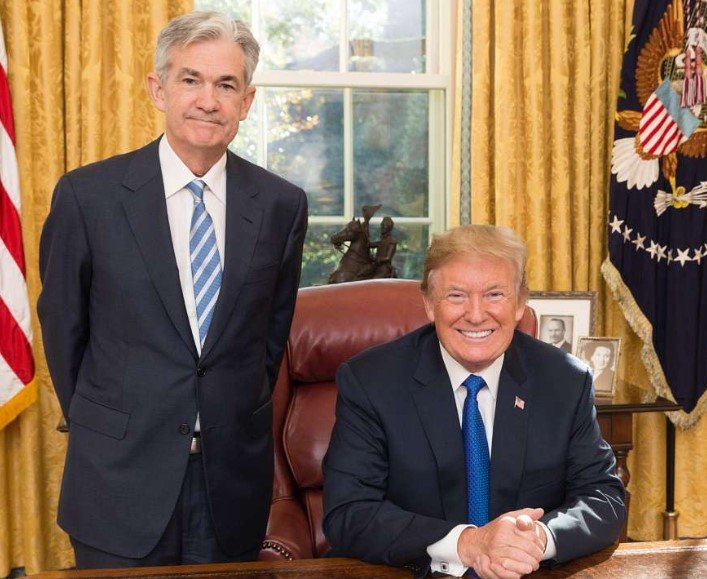US presidential candidate Donald Trump’s latest attack on Federal Reserve Chair Jerome Powell has reignited questions about central bank independence. But the drama in Washington also sparks a curious comparison: how easy would it be for India’s government to oust the RBI Governor?
In a politically charged statement, Trump said Powell’s “termination cannot come fast enough,” citing dissatisfaction over the Fed’s refusal to cut interest rates. The remark spooked markets, rattled confidence, and raised legal eyebrows. Powell’s term as chair runs through May 2026. Whether Trump, if re-elected, could actually fire him is murky at best.
Meanwhile, back in India, the legal terrain around firing the Reserve Bank of India governor is clearer—but that doesn’t mean it’s simple.
Trump vs Powell: Same feud, new volume
This isn’t Trump’s first bout with Powell. He nominated him in 2018, then turned against him in a matter of months. By 2019, he was publicly complaining that Powell was a bigger threat to the economy than China. That wasn’t an offhand remark. It was repeated, intentional, and, frankly, weird.
Now, five years later, the tension’s back. Trump wants interest rates low. Powell doesn’t agree. Cue the fireworks.
Powell’s critics think he’s too slow. His supporters argue he’s just cautious. Either way, the law isn’t on Trump’s side. The Federal Reserve Act doesn’t offer a clean route for firing the Fed chair without cause. Not liking someone’s policy decisions? That’s not “cause.”
In fact, legal scholars say the only real way to push Powell out would be to prove misconduct or incapacity. And even then, lawsuits would fly.

What about the RBI? Can the Indian government fire its top banker?
The Reserve Bank of India Act, 1934 governs the appointment and removal of the RBI Governor. Section 11 says the central government can remove a governor for misconduct or incapacity. But here’s the catch—it’s rare and politically sensitive.
RBI governors usually resign if tensions rise too high. That’s what happened with Urjit Patel in 2018. He stepped down midway through his term, reportedly after clashing with the Modi government over reserves and lending rules. Nobody forced him out on paper, but the pressure was real.
There’s precedent, not law, that keeps the RBI insulated.
Why this independence fight even matters
This isn’t just a legal geek fest. Markets care. Investors care. You should care too.
Because when governments meddle too much in central banking, bad things follow:
-
Inflation spirals out of control
-
Credibility tanks
-
Bond markets freak out
Remember Turkey? President Erdoğan repeatedly ousted central bank chiefs to push his low-rate agenda. Result? The lira collapsed, inflation soared, and international investors bailed.
The US and India have stronger institutional firewalls. But if those start cracking? Watch out.
How do other countries handle this?
Here’s a quick comparison of how different countries manage the removal of central bank heads:
| Country | Removal Rules | Known Political Pressure Cases |
|---|---|---|
| United States | “For cause” only; legally vague | Trump vs Powell (2018–2024) |
| India | Government can remove with cause | Patel resignation (2018) |
| UK | Removal by Queen on Treasury advice | Rare and highly unlikely |
| Turkey | President can remove at will | Multiple firings since 2019 |
| Japan | Diet (Parliament) plays oversight role | Very low direct interference |
Some countries treat central banks like temples. Others treat them like departments.
It’s about money—but it’s also about vibes
Markets run on numbers, sure. But they also run on signals. If a leader starts talking about firing their central banker, the signal is loud and clear: I want control over monetary policy.
It’s like a CEO saying they want to replace the auditor because they didn’t like the numbers. It’s not illegal. But it’s a red flag.
That’s why Trump’s latest Powell outburst triggered a small market slide and a spike in dollar volatility. Investors are skittish. They’ve seen this movie before, and they didn’t like the ending.
Could India see another RBI conflict soon?
Well, never say never. The current RBI governor, Shaktikanta Das, has enjoyed relatively smooth ties with the Modi government. But elections are coming. And economic growth isn’t exactly roaring.
If political leaders start demanding looser monetary policy to juice growth or spending, tensions could flare again.
